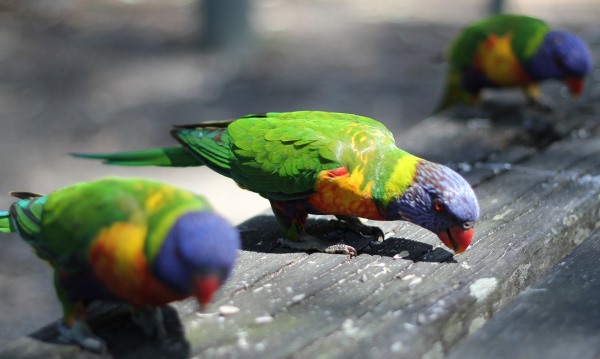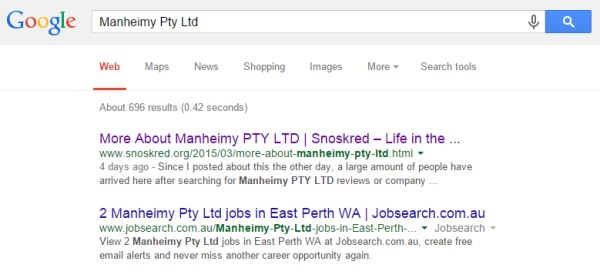Every morning, the first email account I check is the one associated with my Contact page. And this morning, among the regular multitude of I am being scammed what do I do now emails, I was presented with a doozy of an email.. It went like this –
I was lured into this Rockstar money scam, they sent me two checks for $2,300 each and I cashed the checks, I did not deposit them, they then asked to send 1,900 through money gram and I did and now I don’t know what to do! I’m scared! My parents will kill me when they find out! I’m only 16!
I replied right away asking the person to contact Moneygram and see if the money has been collected yet – if it has not, they can cancel the transfer and then they could potentially get the money back.
However, anyone who has watched some Judge Judy in their lifetime knows that a minor cannot enter into a contract. So in order to be able to advise this person I really need more info, eg how did they cash the checks, and how did they send the money via moneygram?
In any case, this young person is going to have to tell their parents. As difficult as that might seem, the parents are actually the people best placed to assist – they will likely have knowledge of the local laws and will know who to speak to in order to try and sort all this out.
Their child has been scammed, and they will be likely to react as a lion does, roaring and on the attack – not towards the child but towards the people who have scammed their child, and also the people who have assisted the scammers in this instance – the check cashing place, and the Moneygram office which allowed a minor to send money.
I do not know how a check cashing place cashes a check when being shown the ID of a person under 18. When they cashed the check their details would have been noted and/or their ID was photocopied. The check cashing place will be the first to find out the check is fraudulent and will probably involve the police, which is something both the young person and the parents will want to avoid.
So my best advice to this young person is to talk to their parents ASAP. Then let the parents take over – the parents may wish to seek legal advice regarding the best way to handle this situation. If the parents make good the money to the check cashing place or come to some kind of settlement with them, it may be possible to avoid the police being involved.
The Rockstar scam is an example of the Car Wrap scam – where the scammers want people to wrap their vehicles in advertising. I’m presently involved in scam baiting one of these scammers who had the hide to post their scam on a local community group that I am a member of. I’m going to post the initial email here in case anyone else is being scammed by these people –
Hello,
Wrap advertising is the marketing practice of completely or partially covering (wrapping) a vehicle in an advertisement or livery, thus turning it into a mobile billboard. This can be achieved by simply painting the vehicle surface, but it is becoming more common today to use large vinyl sheets as decals. These can be removed with relative ease, making it much less expensive to change from one advertisement to another. Vehicles with large, flat surfaces, such as buses and light-rail carriages, are fairly easy to work with, though smaller cars with curved surfaces can also be wrapped in this manner. Wrap advertising is available to anybody irrespective of the vehicle you drive.
We are currently seeking to employ individuals in the United States of America. How would you like to make money by simply driving your car or banner wrapped for PepsiCo. Drink®
How it works?
Here’s the basic premise of the “paid to drive” concept: PepsiCo. Drink® seek residents in the United States who are professional drivers to go about their normal routine as they usually do, only with a big advert for “PepsiCo. Drink®” plastered on your car. The ads are typically vinyl decals, also known as “auto wraps,”that almost seem to be painted on the vehicle, and which will cover any portion of your car’s exterior surface.Don’t Have a Car?
If you don’t have a car, you can also participate if you have a bike.What does the company get out of this type of ad strategy?
Lots of exposure and awareness. The auto wraps tend to be colorful, eye-catching and attract lots of attention. Plus, it’s a form of advertising with a captive audience,meaning people who are stuck in traffic can’t avoid seeing the wrapped car alongside them. This program will last for 3 months and the minimum you can participate is a month.What is the Contract Duration?
Once the wrap has been installed, minimum term is 4 weeks and maximum is 12 weeks.Would the wrap/decal damage the paint of my car?
The decal doesn’t damage the paint of car and will be removed by our representative once the contract expire. We will be responsible for installation and removal of the wrap.You will be compensated with $300.00 per week which is essentially a “rental”payment for letting our company use the space and no fee is required from you. PepsiCo. Drink® shall provide experts that would handle the advert placing on your car. You will receive an upfront payment of $300.00 in form of a check via courier service for accepting to carry this advert on your car.
It is very easy and simple no application fees required. Get back with the following details if you are interested in this offer.
Applicant information:
Name :
Full Street Address(not PO BOX) :
APT #:
City,State,Zip Code:
Cell Phone Number:
Home Phone Number:
Age:We shall be contacting you as soon as we receive this information.
Best Regards,
Roger Smith
Hiring Manager,
PepsiCo®
pepsi6973@gmail.com
A quick note of apology to my regular readers – my apologies for the recent postings in regards to scams. I know these may be somewhat boring to read.
These particular scams are huge at the moment and each and every day, hundreds of people find my website by searching for text contained in these emails or by searching for email addresses, names and contact numbers used by these scammers. For example, if you search on Google for one of the companies I posted about recently, this is what you get –
This is super awesome because it means anyone searching for that company will know it is a scam once they click through and read my post about it.
Many people view just that one page which gave them the search result, and then vanish without commenting or contacting me. So if you got here searching for Pepsico, please do not leave without contacting me or commenting below. You are not alone in being scammed, so let the others arriving here know they are not alone, too.



ugh, the poor child :(
While I don’t doubt it is a scam, how is it so when no money is asked for? I can see there may be an issue with the request for you home address. No application fees! Maybe I should give up my job and drive around in a wrapped car. Of course if they ask for money at some point, forget it.
The scam is a check (cheque or bank draft) overpayment scam.
Basically what happens is, the scammers have sent two checks to this young man. The checks will clear when first banked, because they are using real bank information which the scammers have stolen from the company or person involved.
All that a scammer needs to create a fake check is your name, BSB and account number. Some companies are silly enough to put this information on the internet for the world to see!
Companies are ripe for getting scammed this way because a lot of them do not do the books weekly or monthly – many of them do the books once every 3-6-12 months. So unless the check is for a truly huge amount, most companies will not even pick up on these 2-3 thousand dollar amounts.
Charities are also targeted because usually the accounts they provide for people to put donations into do not have sums going out and are not checked regularly. Charities often put the exact info needed for people to donate on their websites – their name, bsb and account number – and that gives scammers everything they need.
When the company eventually does do the books and spots these checks they did not write, they will go to the bank and ask for these payments to be reversed. And the bank will reverse them. That is when the scam victim will suddenly discover they have been scammed.
So a big problem here is – the banks are actually a part of the scam, because the victim will ask the bank “did the check clear” expecting that it will not clear. And the bank will say yes – and will not mention to the victim that a check can actually bounce up to a year after it has been “cleared”.
The banks will take no responsibility whatsoever – even though they told the victim the check cleared and did not warn them it could unclear – and the banks will demand the scam victim pays back the money to them.
Another big problem here is – the scammers are not asking the victim to use their own money – they are sending a check to the victim. If the scammers were wanting people to pay $1900 of their own money up front, most people would say KTHXBAI NO WAY!
So, overall, the check overpayment scam is an extremely successful scam for the scammers, and until the banks crack down on this kind of fraud, it will continue.
They just keep coming up with new and different ways to rob us don’t they? And some people are just too young or too unaware to stay safe. I would hope that any child of mine would have the sense to come to me if an unknown person sent unsolicited checks. my kids are grown now, the youngest is 34, so I’d say they’re pretty safe.